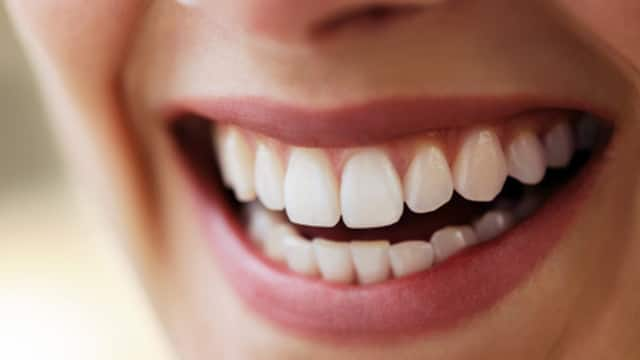What is A Toothache?
A toothache occurs when the innermost layer of the tooth, known as the dental pulp, which consists of sensitive nerves and blood vessels, becomes inflamed. It is a pain or discomfort felt in or around a tooth. It is one of the most common dental problems that people experience. Toothaches can range from mild to severe and may be constant or intermittent. The pain originates from the tooth itself or when the nerve root of a tooth is irritated.
A toothache is a signal that something is wrong and requires prompt dental attention to diagnose and treat the underlying condition causing the pain or discomfort in the affected tooth area. If you experience a toothache, it's important to see a dental professional right away to identify the causes of toothache and prevent the tooth from dying.
Symptoms of Toothache
A toothache can range from mild to strong and may be constant or intermittent. Although various factors can cause toothaches, here are some common toothache symptoms you might experience:
Throbbing Pain: Ranging from mild to severe, a persistent throbbing or sharp pain.
Sensitivity: Tooth sensitivity to hot or cold foods and drinks.
Discomfort: General discomfort, pressure, or a dull ache in the tooth or jaw.
Swelling: Gums around the affected tooth or even the face may become swollen.
Tenderness: Feelings of tenderness and achiness in or around the tooth.
Causes of Toothache
Toothaches are often a sign of a cavity, but there are various reasons why you may experience tooth pain. Some of the possible causes of toothache are listed below.
Cavities
A cavity is a small hole that forms in your tooth when the tooth enamel wears away. If detected early during your regular dental check-up, it can be treated before it becomes a cause of tooth pain. But if left untreated, cavities can be very painful and cause damage to your teeth. If you experience sharp pain when you bite down on your food, it could be a sign of a cavity causing the toothache.
Loose Filling or Dental Work
When a dental filling or crown becomes loose or breaks, the dentin underneath it may get exposed, which can lead to sensitivity and make your teeth more susceptible to cavities. Bacteria can also enter beneath the loose filling, causing irritation and possibly damaging the nerve. If you have a loose or broken filling, it is important to immediately consult a dentist to remove it and replace it with a new one, as it can be one of the toothache causes.
Abscess
A tooth-related abscess, also known as a periapical abscess, can be a painful cause of toothache. It occurs at the root of the tooth when the nerve supplying the tooth is no longer functioning or damaged. The abscess creates pus at the root tip, spreading to the nearby bone. This buildup of pressure from the accumulated pus within the abscess leads to significant pain and swelling in the affected area. If left untreated, the abscess infection will not go away on its own and can potentially damage the surrounding bone and teeth over time.
Worn Enamel
When the enamel of the teeth is worn away, it is called enamel erosion. Worn enamel may not directly cause severe toothache pain, but it can lead to discomfort and pain in various ways. It can expose the dentin, which in turn can cause tooth sensitivity. Additionally, worn enamel weakens the tooth's natural defence against decay, leading to mild to severe toothache, making it one of the toothache reasons.
Tooth Sensitivity
Teeth sensitivity can occur when the inner layer of your teeth, called dentin, becomes exposed. Teeth sensitivity, being one of the common causes of tooth pain, can cause sharp and temporary pain in your teeth while performing certain activities like brushing, eating, or drinking. The sharp pains while consuming hot or cold foods could also indicate that you have sensitive teeth due to receding gums or thinning tooth enamel. You can use a toothbrush with soft bristles and toothpaste specifically designed for sensitive teeth to alleviate your symptoms while waiting for a dental appointment.
Sinusitis
One less common but significant cause of tooth pain is a sinus infection. The sinus cavities are very close to the roots of the upper back teeth. When the sinuses are inflamed and filled with mucus, they put pressure on the tooth roots, leading to pain that feels like a toothache.
If you are experiencing pain only in your upper teeth on both sides of your face, you may have sinusitis. This type of toothache is typically accompanied or preceded by tenderness around your sinuses and nasal congestion. If you experience tooth pain and suspect it might be from a sinus infection, it is important to consult a dentist for proper treatment and pain medication.
TMJ Disorder
The Temporomandibular Joint, commonly known as TMJ, connects the upper and lower jaws. Temporomandibular joint disorder (TMD) is the condition that affects this joint and its functioning. If your pain is more identifiable as jaw pain, it may be caused by temporomandibular disorders caused by a direct injury or trauma to the jaw, by tooth grinding (bruxism), or by arthritis or cancer affecting the jaw. Consult your dental professional for proper diagnosis and care.
Cracked Tooth
Teeth are very strong, but they can crack, fracture, or break from trauma. This dental trauma often happens from either biting down too hard on something or from getting hit in the face. A fractured or broken tooth is also known as a cracked tooth or cracked tooth syndrome (CTS). Dental X-rays may be taken to determine the damage to the broken tooth.
While some cracks may be small and harmless, others can cause the tooth to break or split, leading to pain or sensitivity. Cracked teeth are one of the most common causes of toothache, so it is crucial to seek first aid and see a dentist promptly, as early treatment increases the likelihood of repairing the cracked tooth.
Wisdom Teeth
Wisdom teeth, also known as third molars, are the final set of permanent teeth to emerge in the mouth. They are commonly the most impacted teeth due to insufficient space. When partially emerged, these molars can trap food particles, plaque, and debris in the surrounding soft tissue, leading to various issues. This can result in dull to severe pain caused by pressure from eruption, gum infection, or dental decay, making them a common cause of toothaches.
Gum Diseases
Gum disease, also known as periodontal disease, is an infection of the gums that can damage the soft tissue and bone that support your teeth. In its early stages, gum disease (gingivitis) may cause no pain. But as the disease progresses (periodontitis), it can loosen teeth and cause toothache. Gum disease symptoms include swollen, red, tender gums that bleed easily, receding gumlines, loose teeth, pus buildup around teeth, and persistent bad breath. If you are experiencing a toothache, it is important to see a dentist to determine the cause.
How To Get Relief From Toothache?
Dealing with a persistent toothache can be extremely uncomfortable, making it challenging to concentrate on daily tasks. While over-the-counter pain relievers, cold compresses, and saltwater rinses can provide temporary relief, it's essential to address the underlying cause of the toothache promptly.
For instance, you can try using Colgate Pain Out, an indigenously developed dental gel that provides express relief from tooth pain in three minutes with just one drop. It is a proprietary Ayurvedic Medicine available over the counter and contains scientifically trusted ingredients such as Eugenol, Camphor, and Menthol. You may use it for symptomatic relief from toothache until you consult a dentist to cure the underlying cause of the pain.
How To Prevent Toothache?
To prevent toothaches, it is important to maintain the health of your teeth and gums. Ensure that you visit your dental professional regularly for check-ups. These visits monitor your oral health and address any issues early on. Regular dental check-ups can also help in identifying toothache symptoms and addressing them promptly. By reducing your regular consumption of sugary foods and drinks, you can significantly lower the risk of tooth decay, preventing toothache.
In addition, it is crucial to adopt a consistent oral hygiene routine. Brush your teeth thoroughly twice daily for two minutes, and floss once a day. For instance, brushing your teeth twice daily with Colgate Total Advanced Health toothpaste can help keep your whole mouth healthy. Colgate Total Advanced Health is an antibacterial toothpaste that fights germs for 12 hours on teeth, tongue, cheeks, and gums. Unlike ordinary toothpaste, it has Dual Zinc and Arginine technology, actively seeking out bacteria and forming a protective, anti-germ barrier.
When To See A Dental Professional?
If over-the-counter pain relievers are not helping your toothache or the pain keeps returning, it's time to see a dentist. If you have a toothache lasting more than two days, or if you experience swelling in your face or jaw or pain when opening your mouth wide, immediately contact a dental professional to address potential tooth pain causes.
Getting timely dental attention is crucial because it can help diagnose and treat any underlying causes of dental problems. In cases where the cavity is very deep and has reached the pulp, the dentist may perform root canal therapy to remove the infected pulp and protect the tooth from further damage.
In summary, toothaches are a common dental problem caused by various factors, such as cavities, abscesses, worn enamel, and impacted wisdom teeth. Seeking prompt oral healthcare is essential to identifying the cause of the toothache and preventing further complications. Maintaining good oral hygiene practices, attending regular dental check-ups, and avoiding sugary foods can help prevent toothaches.
Whatever the type and severity of your tooth pain, it is best to call your dentist and make an appointment. The causes of toothaches are not always clear, and a conclusive diagnosis as to the source of the dental pain and subsequent professional treatment is always the best course of action.
Frequently Asked Questions
How do I know if my toothache is serious?
If you have been experiencing severe toothache for several days or if your toothache is accompanied by fever and chills, it may be a dental emergency that requires professional treatment.
Can toothache be treated at home?
Some home remedies like applying a cold compress, gargling with salt in warm water, or applying clove oil can give temporary toothache pain relief. Consulting your dentist is always recommended for toothache treatment.
How long will tooth pain last?
The duration of a toothache depends on its cause. Temporary gum irritation usually resolves in a day or two, while pain from a cavity or abscess may persist. Consulting your dentist is the first step.
What causes severe tooth pain?
The most common causes of tooth pain include tooth decay, dental abscesses, gum disease, tooth fractures, impacted wisdom teeth, and TMJ disorders. If you experience severe tooth pain, seek immediate dental attention, as it may indicate a serious underlying problem that requires prompt treatment.
This article is intended to promote understanding of and knowledge about general oral health topics. It is not intended to be a substitute for professional advice, diagnosis or treatment. Always seek the advice of your dentist or other qualified healthcare provider with any questions you may have regarding a medical condition or treatment.
ORAL HEALTH QUIZ
What's behind your smile?
Take our Oral Health assessment to get the most from your oral care routine
ORAL HEALTH QUIZ
What's behind your smile?
Take our Oral Health assessment to get the most from your oral care routine












